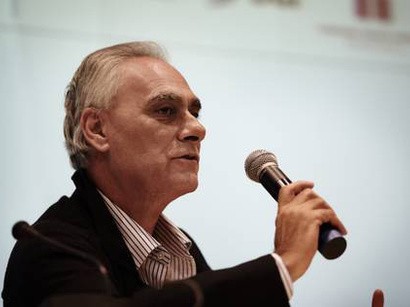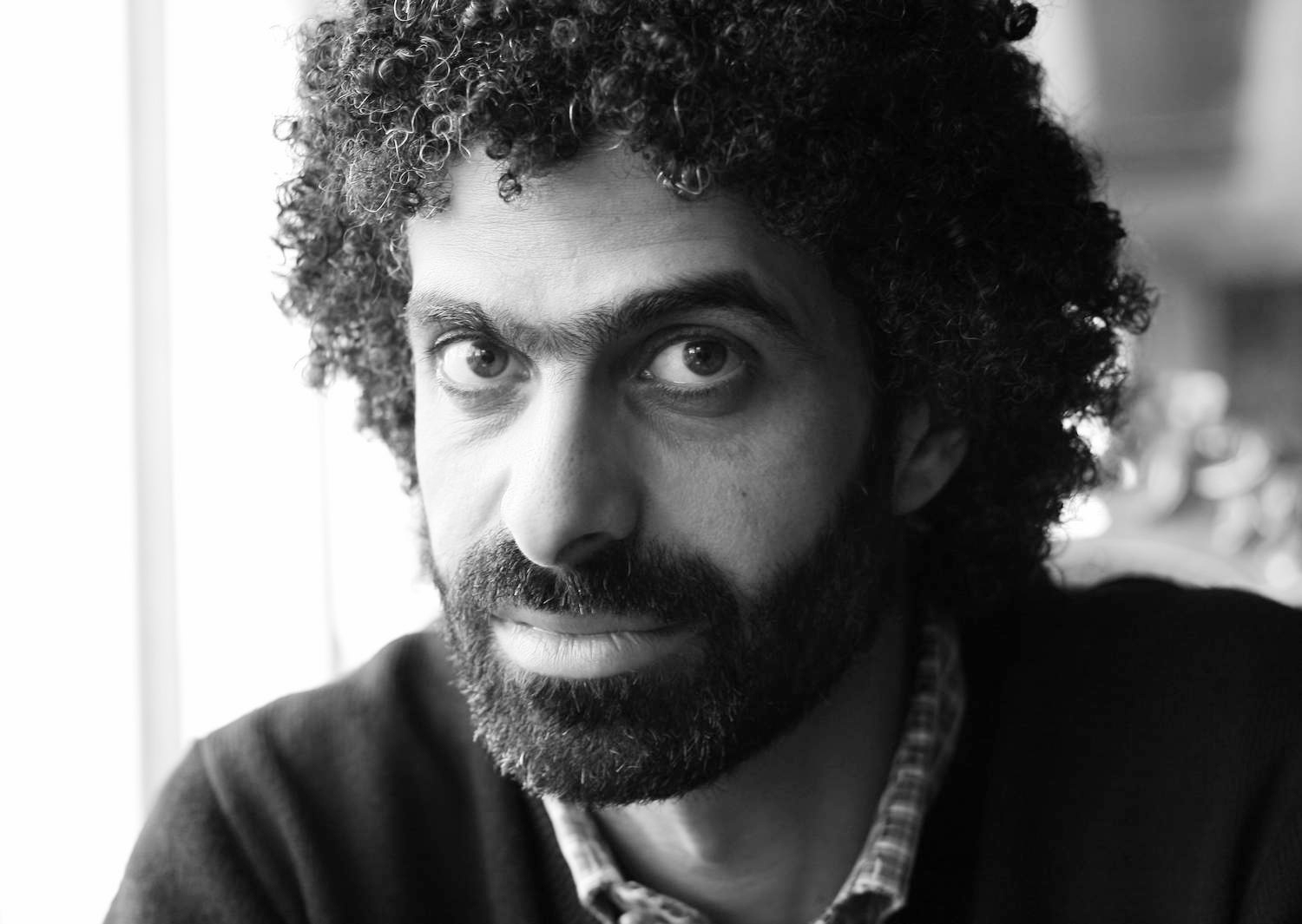Words but no actions. That is Amnesty International’s evaluation of promised Qatari labour reforms five years after the Gulf state was awarded the right to host the 2022 World Cup.
Qatar’s failure to enact wide-ranging reforms heightens the risk of its hosting rights being called into question against a backdrop of legal investigations into the integrity of its bid. Presidential elections in FIFA, the world’s governing body for football, could also mean increased pressure on Qatar, despite efforts by FIFA to move on from a corruption scandal involving the Gulf state.
In a statement, Amnesty researcher Mustafa Qadri, said that “too little has been done to address rampant migrant labour abuse. Qatar’s persistent labour reform delays are a recipe for human rights disaster… Unless action is taken – and soon – then every football fan who visits Qatar in 2022 should ask themselves how they can be sure they are not benefiting from the blood, sweat and tears of migrant workers.”
Qadri further noted that FIFA had “played its part in this sorry performance” given that it was aware of the labour issues when it awarded the World Cup to FIFA. He said FIFA needed to work with Qatar and the business community to address the issue.
Prince Ali Bin Al-Hussein, a frontrunner in next February’s presidential election, has warned that FIFA could revisit Qatar’s hosting rights if it failed to follow through on promises to improve the living and working conditions of migrant workers engaged on World Cup-related construction sites. He said human rights and workers’ rights were important criteria in the awarding of the tournament, which is the world’s foremost sporting mega-event, together with the Olympic Games.
“As an Asian, I am asking that they [Qatar] have to abide by that. I have seen suggestions from Qatar, especially in terms of workers’ rights, that they want to move ahead, but FIFA has to guarantee that they do so. Because that is the basis of how we should be. Football can be a proper means of serving society, and that for me is the most important thing,” Prince Ali said.
FIFA’s corruption scandal has so far led to the indictment in the United States of 14 serving and former FIFA executives, as well as the suspension of the group’s president, Sepp Blatter, and European football chief Michel Platini.
It has also sparked a Swiss investigation into the awarding in December 2010 of the tournament to Qatar and the 2018 World Cup to Russia. The US Department of Justice proceedings could be expanded to include the Qatari bid, which has been tarred by allegations of corruption and bribery.
Qatar initially built goodwill by responding positively to criticism by trade-union and human-rights activists who described as “modern slavery” its regime for the migrant worker force, which constitutes a majority of the Gulf state’s population. Qatar’s “kafala” (or sponsorship) regime puts employees at the mercy of their employers.
The goodwill has since largely been wasted by Qatar failing to forcefully follow through on promised reforms. In a first positive fallout from the awarding of the tournament, Qatar broke with the Gulf practice of imprisoning the country’s critics or barring them from entry. Instead, it opened its doors to the likes of Amnesty, Human Rights Watch and the International Trade Union Confederation (ITUC).
As a result, the 2022 Supreme Committee for Delivery & Legacy, alongside Qatar Foundation and Qatar Rail, have adopted new labour standards to be applied on all their contracts. These have significantly improved workers’ living and working conditions, but stopped short of abolishing the kafala system.
The changes may help assuage FIFA’s next president, but they will not convince Qatar’s critics, who argue that the standards need to be enshrined in national law rather than only being applicable to a limited number of Qatari institutions. The situation raises questions about Qatari sincerity and the value of engagement.
In its statement, Amnesty noted that Qatar has backtracked on promises to implement limit changes by the end of this year. Among other things, Qatar has postponed until the end of 2016 the expansion of its labour inspector force, as well as limited changes of the kafala system. The changes, moreover, fail to abolish one of the most onerous facets of kafala: the need for an employee to obtain his or her employer’s consent to change jobs.
A series of related events have called into question the effectiveness or the sustainability of the kafala system and cast a further shadow over how Qataris, who constitute a minority of the Gulf state’s population, approach communal affairs.
Qatar last month introduced a long-delayed wage-protection system that requires businesses to pay workers on time by direct bank deposits. Yet, several hundred employees of Drake & Scull, in a rare work stoppage that is banned in Qatar, went on strike last week in a dispute over unpaid wages.
Moreover, heavy rains that last month led to flooding, including of Qatar’s newly opened $15bn Hamad International Airport, prompted an investigation into the quality of construction and a temporary ban on contractors and workers leaving the country.
Doha’s Central Municipal Council is set to vote on barring single men from entering malls on at least one day a week, a move that appears to underline Qatar’s de facto segregation and casts a further shadow over its sincerity about labour reform. Most of Qatar’s migrant workers leave their families behind in their home countries. Under the proposal, they would be unable to visit malls on the one day a week that they are off.
Malls and sports facilities are Qatar’s main venue for public relaxation and entertainment. In another facet of de facto segregation, many sports facilities could also be deemed off limits to migrant workers. Qatari institutions that have adopted improved standards, like the supreme committee, are building separate sports facilities for workers in cities that are exclusively built for them.
“This looks like discrimination by stealth. It will certainly have a detrimental effect,” warned Human Rights Watch Gulf researcher Nicholas McGeehan.
While Qatar’s national football team has recently performed well and invested heavily in grooming potential foreign players, Guardian reporter Robert Booth noted recently that the Gulf state has ignored a potentially significant talent pool in its own backyard: football-crazy migrant workers.
Qatar “should scout the migrant camps for football stars, make the best of these citizens and throw them into national sides. It would be a statement of intent”, Booth said.
The issue of labour reform is complicated by the politics surrounding the fact that Qataris are a minority in their own country. Many citizens fear the opening of a Pandora’s Box, with foreigners demanding more rights that could ultimately threaten Qatari control of their culture, society, and state.
If Qatar wastes whatever goodwill still exists and allows the sincerity of its declared intentions to be called into question, it may be denied the time and space it critics were willing to grant it for enacting reforms.
James M. Dorsey is a senior fellow at the S. Rajaratnam School of International Studies, co-director of the University of Wuerzburg’s Institute for Fan Culture, a syndicated columnist, and the author of The Turbulent World of Middle East Soccer blog and a forthcoming book with the same title.

